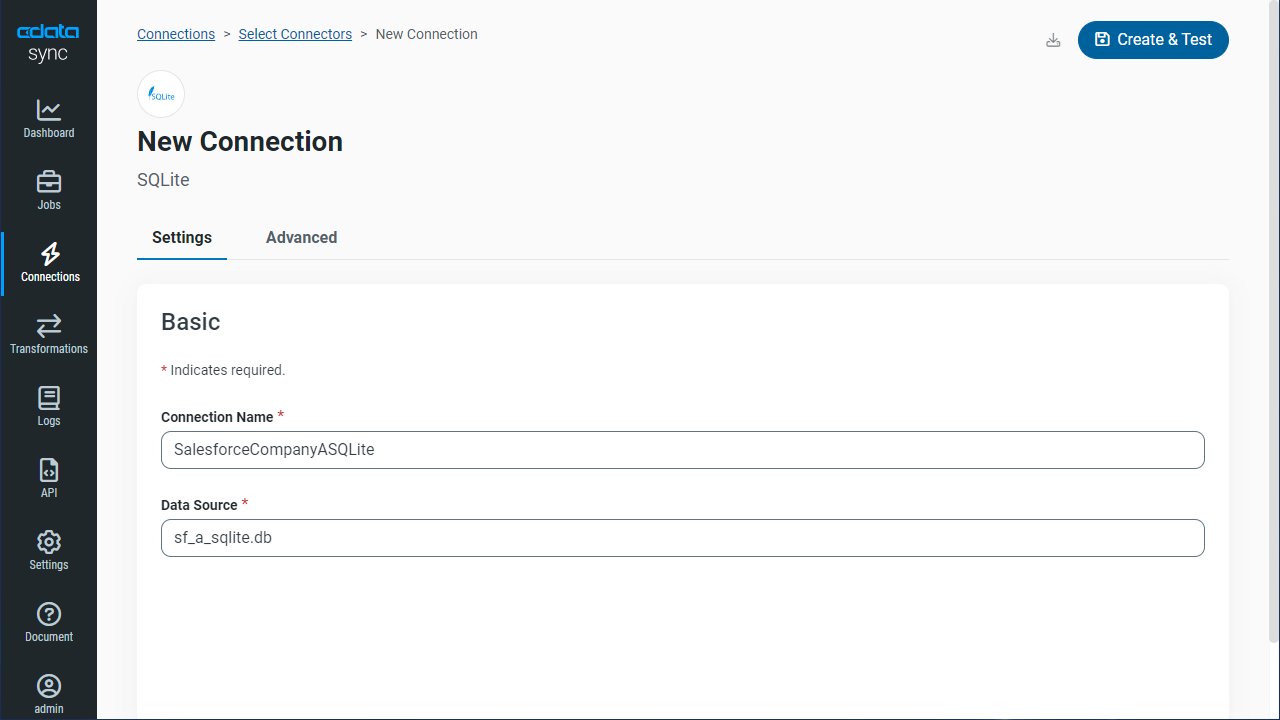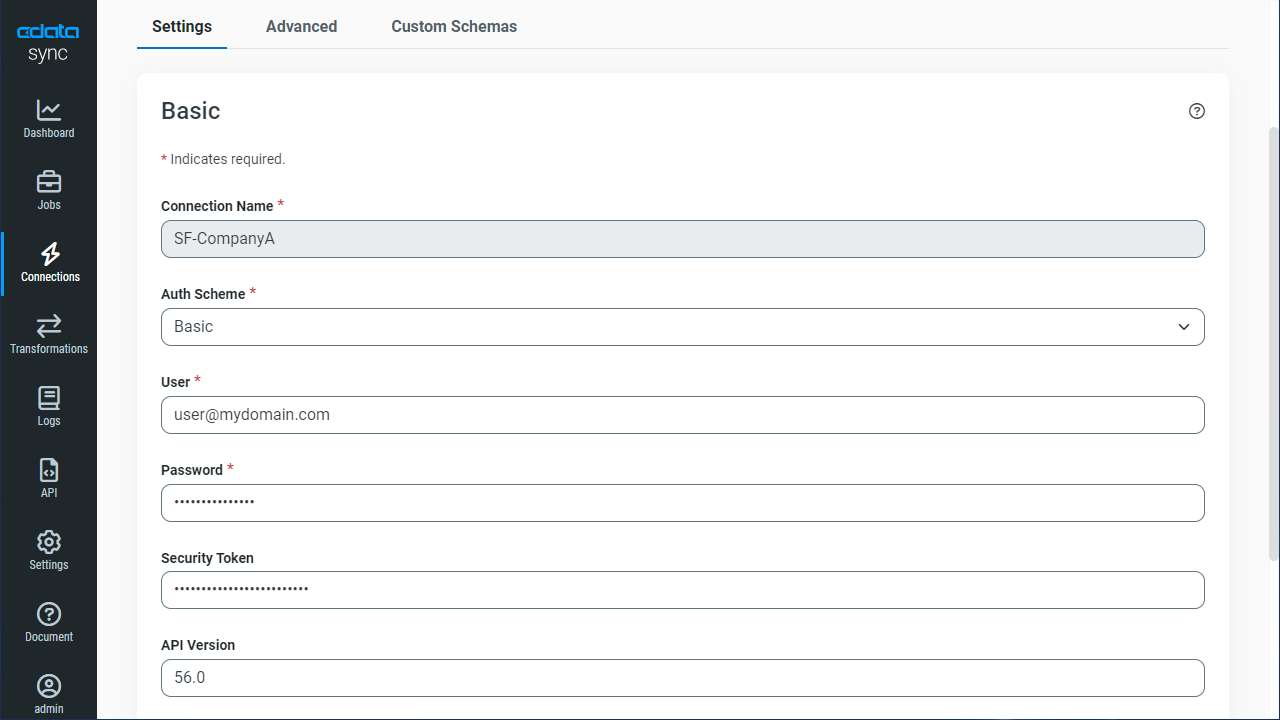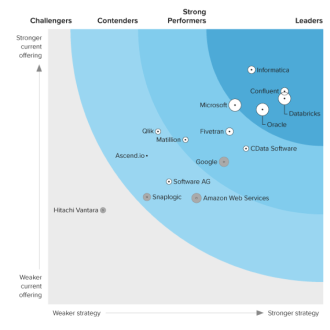Discover how a bimodal integration strategy can address the major data management challenges facing your organization today.
Get the Report →Replicate Multiple BigCommerce Accounts
Replicate multiple BigCommerce accounts to one or many databases.
CData Sync is a stand-alone application that provides solutions for a variety of replication scenarios such as replicating sandbox and production instances into your database. CData Sync includes a web-based interface that makes it easy to manage multiple BigCommerce connections. In this article we show how to use the web app to replicate multiple BigCommerce accounts to a single database.
Configure the Replication Destination
Using CData Sync, you can replicate BigCommerce data to any number of databases, both cloud-based and on-premises. To add a replication destination, navigate to the Connections tab.
- Click Add Connection.
- Select a destination and enter the necessary connection properties. In this article, we use SQLite.
- Enter the necessary connection properties. To replicate BigCommerce to a SQLite database, enter a file path in the Data Source box.
- Click Test Connection to ensure that the connection is configured properly.
![Configure a Destination connection (SQLite is shown).]()
- Click Save Changes.
Configure BigCommerce Connections
You can configure connections to BigCommerce from the Connections tab. To add a connection to one of your BigCommerce accounts, navigate to the Connections tab. For each BigCommerce account you wish to replicate, do the following:
- Click Add Connection.
- Select a source (BigCommerce).
- Configure the connection properties.
BigCommerce authentication is based on the standard OAuth flow. To authenticate, you must initially create an app via the Big Commerce developer platform where you can obtain an OAuthClientId, OAuthClientSecret, and CallbackURL. These three parameters will be set as connection properties to your driver.
Additionally, in order to connect to your BigCommerce Store, you will need your StoreId. To find your Store Id please follow these steps:
- Log in to your BigCommerce account.
- From the Home Page, select Advanced Settings > API Accounts.
- Click Create API Account.
- A text box named API Path will appear on your screen.
- Inside you can see a URL of the following structure: https://api.bigcommerce.com/stores/{Store Id}/v3.
- As demonstrated above, your Store Id will be between the 'stores/' and '/v3' path paramters.
- Once you have retrieved your Store Id you can either click Cancel or proceed in creating an API Account in case you do not have one already.
![Configure a Source connection (Salesforce is shown).]()
- Click Connect to ensure that the connection is configured properly.
- Click Save Changes.
Configure Queries for Each BigCommerce Instance
CData Sync enables you to control replication with a point-and-click interface and with SQL queries. To configure a replication, navigate to the Jobs tab and click Add Job. Select the Source and Destination for your replication.
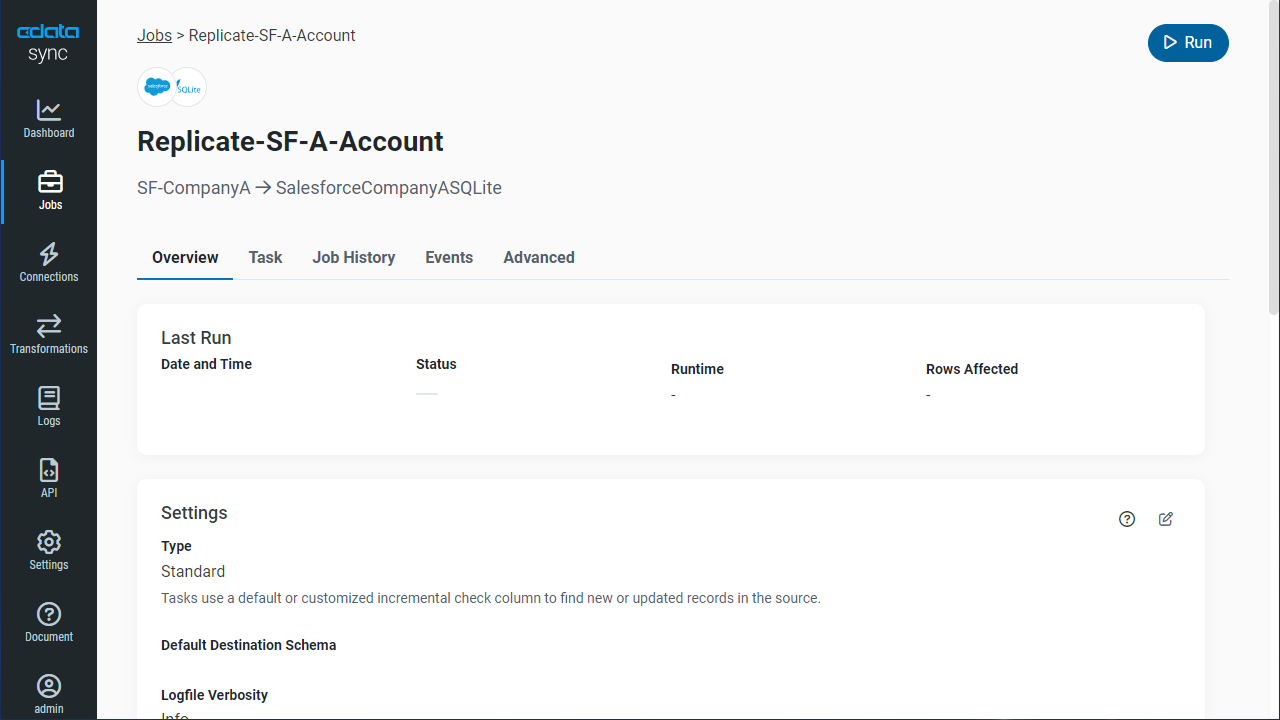
Replicate Entire Tables
To replicate an entire table, click Add Tables in the Tables section, choose the table(s) you wish to replicate, and click Add Selected Tables.
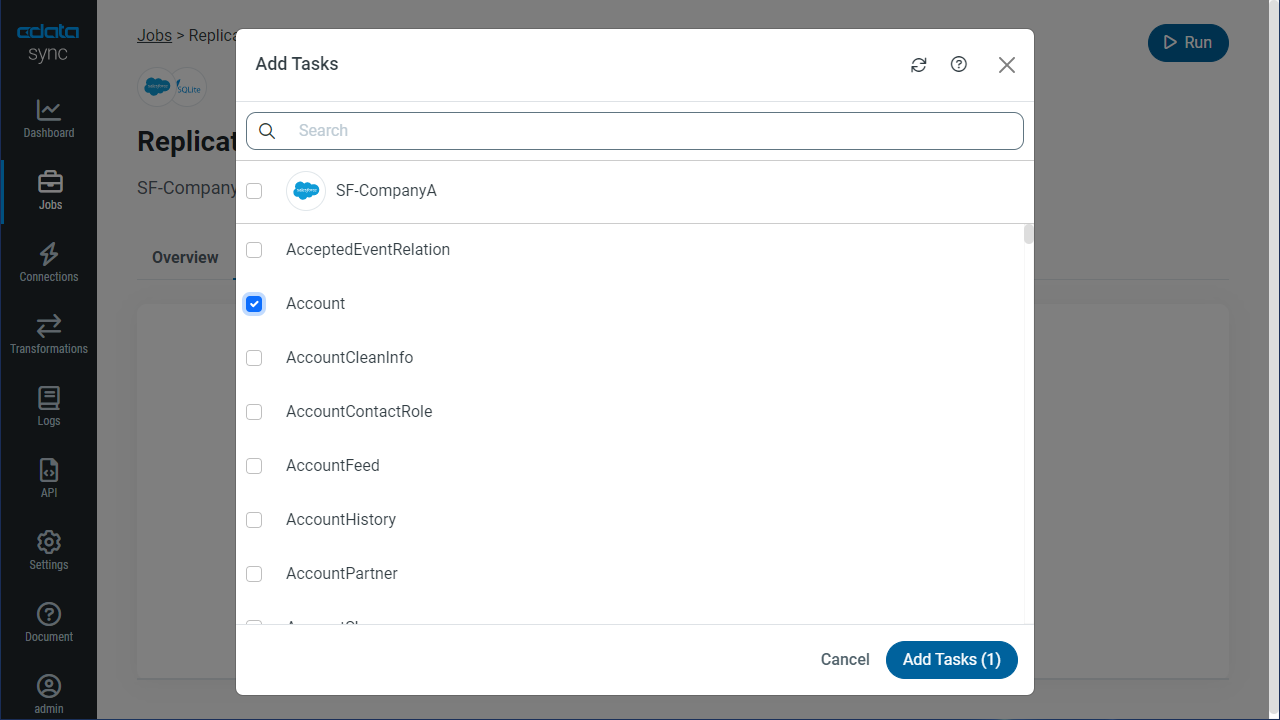
Customize Your Replication
You can use a SQL query to customize your replication. The REPLICATE statement is a high-level command that caches and maintains a table in your database. You can define any SELECT query supported by the BigCommerce API. To customize your replication, click Add Custom Query in the Tables section and define the Query Statement.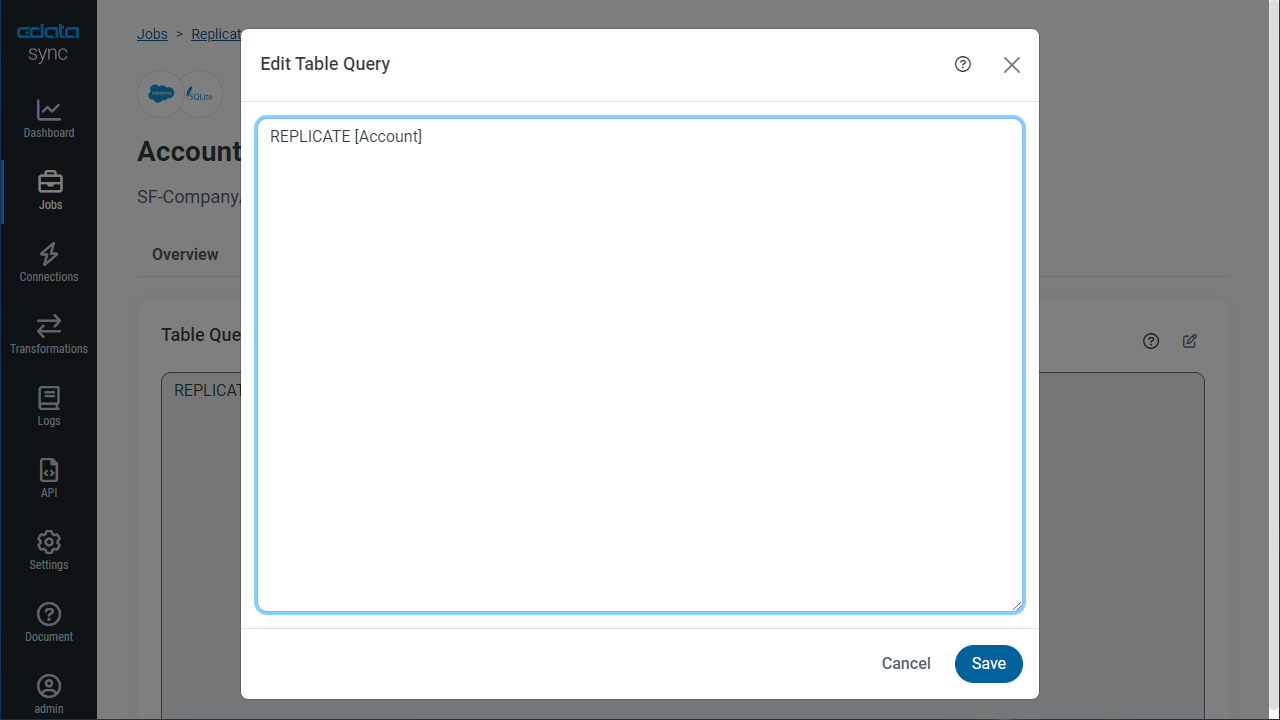
The statement below caches and incrementally updates a table of BigCommerce data:
REPLICATE Customers;
You can specify a file containing the replication queries you want to use to update a particular database. Separate replication statements with semicolons. The following options are useful if you are replicating multiple BigCommerce accounts into the same database:
-
Use a different table prefix in the REPLICATE SELECT statement:
REPLICATE PROD_Customers SELECT * FROM Customers; -
Alternatively, use a different schema:
REPLICATE PROD.Customers SELECT * FROM Customers;
Schedule Your Replication
In the Schedule section, you can schedule a job to run automatically, configuring the job to run after specified intervals ranging from once every 10 minutes to once every month.
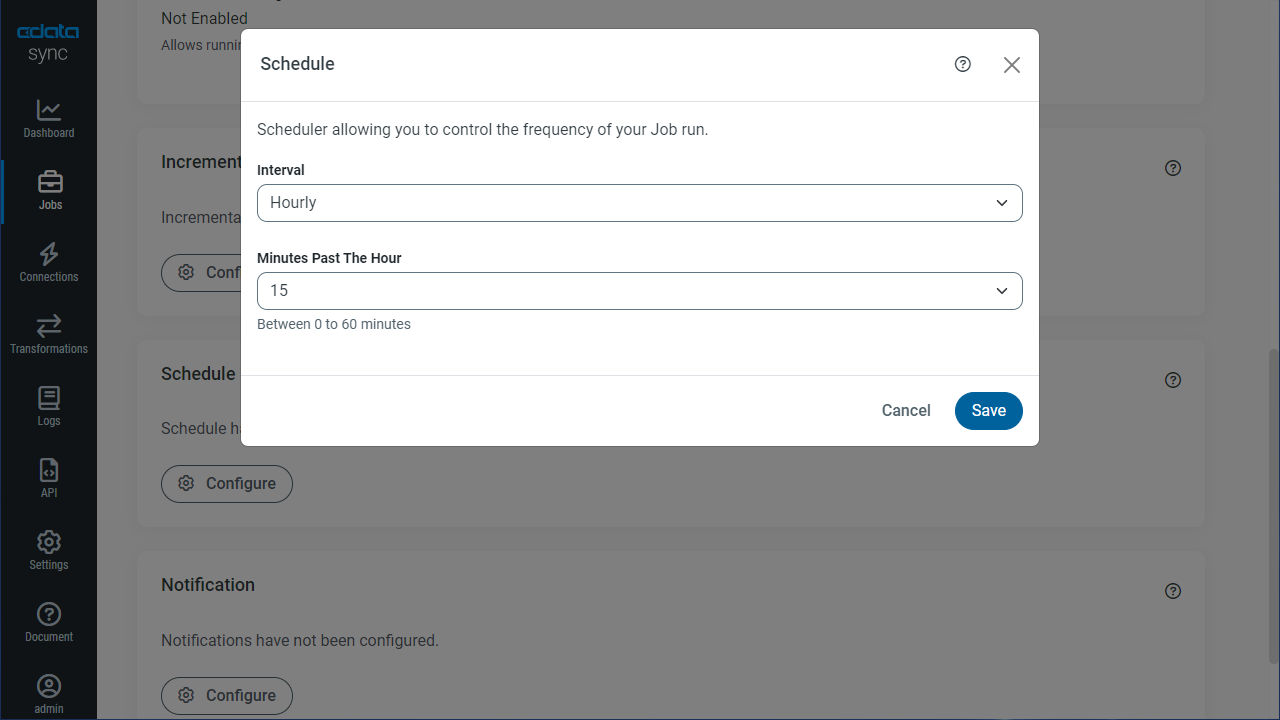
Once you have configured the replication job, click Save Changes. You can configure any number of jobs to manage the replication of the data from your different BigCommerce accounts.






